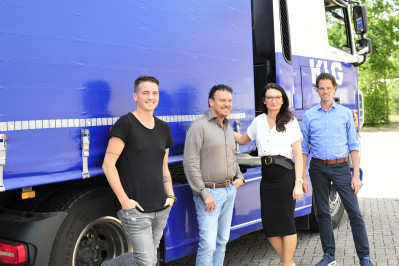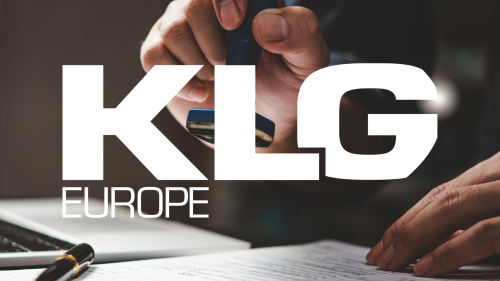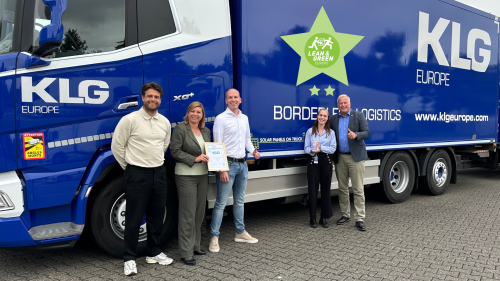Exporters in European customs legislation
01 juli 2020
Dutch Customs announced on 1 October 2019 that only an EU-based exporter may be included in the export declaration. The moment from which this new rule enters into force has been postponed several times by Customs. The idea behind this is to give logistics providers and representatives more time to prepare for the new situation. The effective date of this change has been postponed again due to the corona issues. But will come into effect on the 1st of October. Customs will then enforce it.
Exporter definition
The definition of the role of exporter has been amended to simplify enforcement by Member States on exports of goods. This is because there are some conditions attached to the Export Scheme, which can be checked more easily with an EU-based party than with a non-EU-based party.
From the new effective date, you can only submit an export declaration that is in accordance with Article 1 paragraph 19 of the UCC Delegated Regulation (GVo.DWU). Article 1, paragraph 19 of the GVo.DWU shows that two "persons" can act as exporters:
- A person established in the customs territory of the Union who has the power to decide and has decided that the goods will leave that customs territory;
- when A. does not apply, any person established in the customs territory of the Union who is party to the agreement under which goods will leave that customs territory.
The difference between the above-mentioned situations will be explained in more detail.
But what is the meaning of "person established in the customs territory of the Union"? Established - as follows from Article 5 (31) UCC - with a legal person means that the exporter must have its registered office or its main administration in the EU or have a permanent establishment in the EU.
Customs will therefore apply the exporter's definition closely. As a result, as of the effective date of the change, only an EU-based exporter can be identified in the export declaration. Other Member States have also announced strict enforcement of the definition.
Guidance document
Since the new definition of exporter came into effect, the guidance document “UCC Export & Exit” was published in July 2019. The document describes the exporter as follows:A person who is not established in the customs territory of the EU cannot be an exporter and his EORI number or name and address cannot appear in Box 2 (D.E. 3/2 or 3/1 respectively) of the export declaration. Other contractual or business arrangements are needed in order to establish who is the exporter.The guidance document states that a freight forwarder or other party can also act as an exporter, as long as he meets all the requirements of the definition of exporter. Although the real exporter is not based in the EU, there is still a solution. It is important that the other party has the power to decide that the goods will be taken to a destination outside the customs territory of the EU.
Ex Works deliveries - often a problem
The careful application of the definition exporter has consequences for deliveries with INCO term Ex Works. An example: A Dutch company sells goods using the INCO term Ex Works to a company based in China. The parties have agreed that the Chinese company will collect the goods from the seller in the Netherlands. The Chinese buyer is then responsible for customs clearance for exports. At the moment, the Chinese buyer can still act as an exporter. However, after the effective date, the Chinese buyer can no longer act as an exporter.It is mandatory to state an exporter in the export declaration. If the actual exporter - which is not established in the EU - cannot be declared as an exporter in the export declaration, another party must be declared as an exporter. Two possible solutions follow. Namely the change of the INCO term or the situation that another - third - party acts as an exporter.The first option is for the seller, if it is located in the EU, to act as an exporter. In such a case, however, the INCO term Ex Works no longer matches this delivery. It is more appropriate to change the delivery condition. The INCO terms Free Carrier (FCA) or Free On Board (FOB) fit better with the delivery. After all, with these INCO terms, the seller is responsible for the export formalities. The problem is then solved immediately. Because the delivery condition changes, other prices may also have been agreed.The seller will often consciously choose Ex Works in order not to have anything to do with the export formalities.The second possibility is that the seller and the buyer are looking for a third party that is willing to act as an exporter. In many cases this will be the logistics service provider or a customs broker. This is also the second option mentioned in Article 1, paragraph 19 of the GVo.DWU. This is subject to the condition that the "third party" has the power to decide that the goods will be brought to a destination outside the EU. He will therefore have to be contractually involved in the transaction.
Other exporter - model contracts
In order to exercise control over the goods as a third party, additional agreements must therefore be made and this must be laid down in an agreement. Just a simple power of attorney is insufficient for this. In this context, FENEX and evofenedex drew up model contracts on 4 May 2020. These agreements can be concluded by two parties (buyer and third party) or three parties (buyer, seller and third party). FENEX and evofenedex recommend entering into the three-party agreement.With parties established outside the EU, a two-party agreement may suffice because other securities, contracts and agreements can secure the logistics service provider or representative to fulfill the role of exporter on behalf of its client.The model agreements limit the liability of the third party (for example, the freight forwarder). Export restrictions and product requirements are examples of responsibilities of the client (the purchasing party).
Definition not applicable to re-export from Bonded Warehouse
A question that has been asked to us more often is whether the new definition also applies to re-exports. It is clear from Article 270 paragraph 1 UCC and also from the guidance document that this is not the case. The requirement for the exporter to be established in the EU does not apply to the re-export of non-Union goods. Re-exports are when goods are not released for free circulation, but are stored as non-Union goods under a suspension arrangement and subsequently shipped to a destination outside the EU. This often occurs when companies not established in the EU temporarily transfer goods to the EU and then sell them to customers outside the EU. Storage of the goods then takes place in a customs warehouse or space for temporary storage. In such a situation, a company not established in the EU can therefore qualify as an exporter.
VAT on exports
The strict application of the exporter definition can also have consequences for export VAT. If the INCO term is changed (to, for example, Free Carrier) and the selling party acts as an exporter, this is also the best option for VAT on export. After all, the selling party will want to apply the zero VAT rate and then needs a "confirmation of exit". That's the problem with Ex Works, but not with Free Carrier (or any other INCO term). After all, the selling party then submits the export declaration and has a balanced administration, including confirmation of exit.When using the second option - a third party is involved in the supply to act as an exporter - the selling party does not necessarily have the information necessary to make the administration conclusive for the application of the zero rate. He does not make the export declaration and is dependent on the third party for the confirmation of exit.
Export control measures
Acting as an exporter also entails obligations in the field of export control measures. For example, the exporter is subject to the provisions of the sanctions legislation and the dual-use legislation. An important difference with the definition of exporter from customs legislation is that an exporter does not have to be established in the EU under the dual-use regulation. This does not detract from the fact that the person who acts as an exporter - whether or not established in the EU - is responsible for complying with the very strict provisions. The export of dual-use goods is prohibited without an export license. Therefore, the person who acts as an exporter must ensure that all provisions are complied with and is responsible for any violation. The problem, however, is that a logistics service provider often has no in-depth relationship with the buyer of the goods and may also know less about the specific properties of the goods. However, this is necessary to determine whether these specific rules are being met. In addition, the exporter must determine whether the destination is not prohibited under the Sanctions Act. Violation of these provisions often has major consequences. Not only a criminal fine and a criminal record, but also negative media attention. Knowledge and awareness in this area and knowing the product it concerns is therefore necessary.
Services KLG Europe
The services which KLG Europe offers are completely in line with above information, we can arrange required customs documents, and advice you in customs related matters. Also we have our own bonded warehouse. We have an extended, specialized customs department and offer customer specific solutions for complex customs enquiries. For a number of customers we’ve realized significant cost reductions by re-designing the logistics supply chain, for which our customs department work together with our transport and warehousing department. If you have any questions regarding customs related matters please feel free to contact us.
Source: ec.europa.eu: https://ec.europa.eu/taxation_customs/sites/taxation/files/resources/documents/customs/customs_code/guidance_definition_exporter_en.pdf
More news
We would like to get in touch with you.










